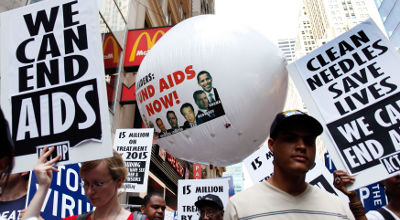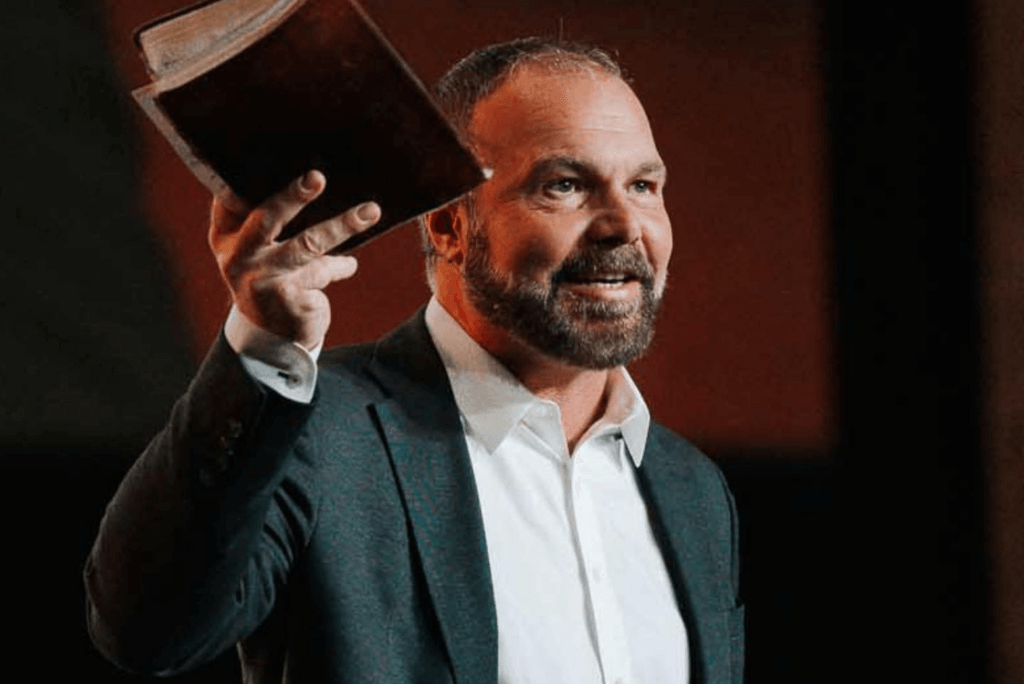The Supreme Court agreed to consider whether the government can require groups that receive federal funding for overseas HIV/AIDS programs to have explicit policies that oppose prostitution and sex trafficking.
The case is one of six that the court on Friday agreed to hear in its current term, with oral arguments most likely in April. Among the other cases is one examining the reach of the court’s landmark 1966 Miranda v. Arizona decision on the right to remain silent when questioned by the police.
The HIV/AIDS funding case thrusts the court into another sensitive social issue, the spread of sexually transmitted diseases, in a term in which it is also considering the legality of same-sex marriage, affirmative action and a key voting rights law.
It involves the government’s effort to overturn a July 2011 lower court decision voiding the policy requirement set forth in the U.S. Leadership Against HIV/AIDS, Tuberculosis, and Malaria Act of 2003.
According to the government, requiring funding recipients to take a public stand against prostitution and sex trafficking can change habits and help thwart the spread of HIV/AIDS.
Some aid groups argued, and the 2nd U.S. Circuit Court of Appeals in New York agreed, that it violated their free speech rights under the First Amendment to the U.S. Constitution.
Judge Barrington Parker wrote for a 2-1 panel of the 2nd Circuit that the requirement “compels recipients to espouse the government’s viewpoint.” He added that advocacy against prostitution is not central to the fight against HIV and AIDS.
The dissenting judge, Chester Straub, countered that the policy requirement was “entirely rational,” and neither imposed a coercive penalty on protected rights nor discriminated as a means to suppress ideas.
In its appeal, the government said the 2nd Circuit decision conflicted directly with a 2007 decision by a federal appeals court in Washington.
The Alliance for Open Society International Inc, a nonprofit opposing the law, said the 2nd Circuit correctly recognized that Congress may not condition the receipt of public funds on giving up First Amendment rights.
Eight justices will decide the case. Justice Elena Kagan recused herself, perhaps because she had worked on it as Solicitor General.
Police Questioning
In a police questioning case, the court agreed to decide whether a suspect’s refusal to answer police questions prior to being arrested and read his or her rights can be introduced as evidence of guilt at his subsequent murder trial.
The court accepted the appeal of Genovevo Salinas, who was convicted of murder and sentenced to 20 years in prison for the December 1992 deaths of two brothers in Houston.
Salinas had voluntarily answered police questions for about an hour soon after the crime occurred, but he became silent when asked whether shotgun shells found at the crime scene would match a gun found at his home.
After ballistics testing matched the gun to the casings left at the murder scene, Salinas’ silence was used as evidence against him at his trial.
Salinas’ lawyer argued that his client deserved a Fifth Amendment protection against self-incrimination, even though he had not been under arrest or read his Miranda rights.
But the 5th U.S. Circuit Court of Appeals in April upheld the conviction, while noting that other federal appeals courts were split as to whether “pre-arrest, pre-Miranda silence is admissible as substantive evidence of guilt.”
Texas opposed the appeal, saying Miranda did not apply, and that any error was harmless.
Among the other cases accepted for review on Friday:
- Whether the government can require a former federal sex offender who had served his sentence and been freed from custody to register a change of address;
- Whether state or federal law governs payment of death benefits under a federal worker’s life insurance policy;
- Whether a federal law making it a crime to obtain “property” by threats applies when a person uses a threat to get the withdrawal of a recommendation to the New York State comptroller to reject a pension fund investment for his company.
- Whether federal law preempts a municipal port from limiting access to federally licensed motor carriers.
Decisions in the six cases are expected by the end of June.
The HIV/AIDS funding case is U.S. Agency for International development et al v. Alliance for Open Society International Inc et al, U.S. Supreme Court, No. 12-10. The Salinas case is Salinas v. Texas, U.S. Supreme Court, No. 12-246.
Reporting by Jonathan Stempel; Additional reporting by Terry Baynes; Editing by Eddie Evans and Andrew Hay.
© 2013 Thomson Reuters. All rights reserved.
See an error in this article?
To contact us or to submit an article





















